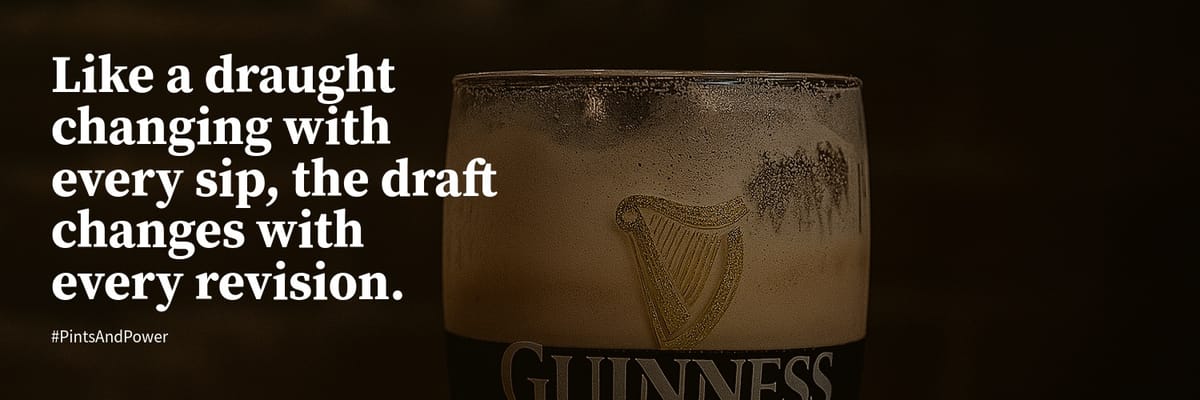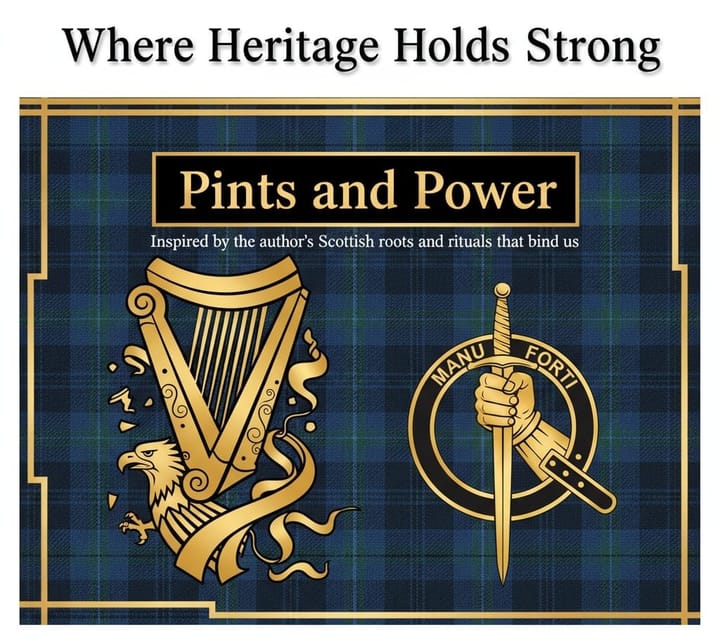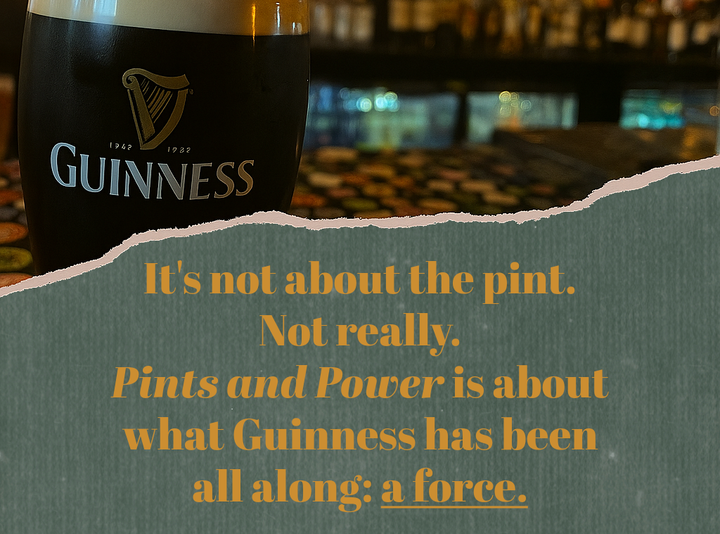The Chapter That Disappeared—So the Story Could Breathe
Some stories aren’t meant to stand alone. They’re meant to flow through everything.

Every chapter in a book earns its place. Until it doesn’t.
When I first outlined Pints and Power, Chapter 12—titled The Pint Goes Pop—was a clear inclusion. It captured the way Guinness appears far beyond the bar: in films, in songs, in unexpected cultural corners where it speaks without saying a word. It was a celebration of resonance, not branding. Of memory, not marketing.
I believed in it. Still do.
But as the book deepened, and the writing matured, I began to feel a quiet dissonance. That chapter, while rich in examples, started to feel like a reference section. An index. A really well-researched sidebar.
And that’s not what this book is.
This book is a lived story. It’s the rhythm of voices, the stillness of a proper pour, the breath between sips. Chapter 12 had great material—but its tone broke that rhythm.
So I made a choice.
Like a Pint Half Gone
Letting go of Chapter 12 didn’t feel like a loss. It felt like looking at a half-empty pint.
Anyone who’s ever taken their time with a Guinness knows: the experience evolves. The first sip is full of anticipation. The middle opens up. By the end, the beer is warmer, quieter, and somehow more honest. A pint isn’t a fixed moment—it’s a slow conversation. A shift in mood. A space where ideas soften and stories change shape.
That’s what happened to this chapter. It changed character.
The stories inside The Pint Goes Pop—scenes from The Banshees of Inisherin, lyrics from The Pogues, the legacy of the Guinness Book of World Records—weren’t side notes. They were threads. And threads don’t belong in a box. They belong in the fabric.
So I didn’t delete Chapter 12. I poured it back in.
From Footnote to Footpath
What began as a standalone tribute now lives throughout the book, where it breathes more naturally:
- A pint in a film about fractured friendship supports a reflection on civil war and silence.
- A song about James Connolly reinforces memory, rebellion, and loss.
- The Guinness World Records story appears alongside legacy and absurdity, not apart from them.
Instead of pointing to pop culture from the sidelines, the narrative now includes it—woven where the emotional weight is highest.
“You don’t rush a good pint. You let it evolve.
And sometimes, you don’t name a chapter.
You let it become the story.”
The Pour Is Better Now
This change makes the book stronger. More integrated. More alive.
But I’m not letting the references vanish. For readers who want to explore the cultural echoes of Guinness more deeply, you’ll find:
- A special section of the bibliography, linking to the songs, films, and shows mentioned throughout
- Full entries in the index, for those who want to trace the cultural pulse across chapters
The Chapter Was Never the Point
Like the end of a good pint, Chapter 12 didn’t disappear. It folded into the story it helped shape. It stopped standing alone—because it didn’t need to.
This book isn’t an archive. It’s a conversation. It’s not an encyclopedia. It’s a living pour.
And sometimes, when you’re writing, the best thing you can do is let something go so everything else can breathe.
The chapter is gone.
The story is stronger.
The pour is right.
💬 Want more behind-the-scenes notes from the writing process? Be sure to follow @pintsandpower or subscribe to the newsletter for updates, excerpts, and release news.
— Mike





Comments ()